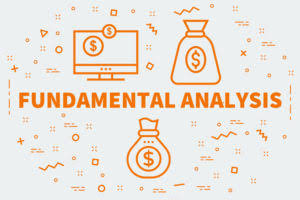
The remaining production, termed “profit oil,” is then split between the state and the contractor according to a pre-agreed formula. This split can vary significantly depending on the terms negotiated and the level of production achieved. This annual publication provides an update on accounting, tax, and regulatory matters relevant to the oil and gas accounting oil and gas industry. The update discusses matters critical to oil and gas entities, including updates to SEC, FASB, and tax guidance with a specialized focus on the oil and gas industry. The accounting for AROs begins with the initial recognition of the obligation at the time the asset is installed or when the obligation is incurred.

Sign up to Nature Briefing
The sum of national emissions should tally with growth in atmospheric carbon dioxide and estimates of carbon sinks. Nations, companies and scientists each use different, disjointed methods to tally greenhouse-gas emissions. From governments to businesses, information on these emissions is inconsistent, incomplete and unreliable. Each of these has its own unique set of departments that handle the various entries and procedures to ensure costs and revenue are accounted for properly.
Asset Valuation
This facilitates transactions across borders, enables peer-to-peer transactions and extends access to the financial system to communities that are underserved by banks. One of the primary challenges in adhering to these standards is the frequent updates and changes that occur. For instance, the introduction of IFRS 16, which deals with lease accounting, has had a significant impact on how oil and gas companies report their lease obligations. Companies must stay abreast of these changes and adjust their accounting practices accordingly. This often involves extensive training for accounting staff and the implementation of new software solutions to ensure compliance. Tools like SAP S/4HANA and Oracle Financials Cloud are commonly used to navigate these complexities, providing real-time updates and analytics to support accurate financial reporting.

Taxation in Oil and Gas Sector
Record purchaser checks, track owner revenue statuses, print revenue checks, input monthly revenues, costs, and taxes for distribution to royalty owners. Our professionals have a comprehensive understanding of the industry’s challenges because we’ve confronted them ourselves, with many previously holding prominent positions with influential oil and gas companies. Make stronger business decisions and stay informed on the latest industry trends and developments with our articles, guides, and other resources. Advanced technology and an evolving regulatory environment are rapidly changing the industry, causing frequent price fluctuations and enhanced production demands. To stay competitive, your business needs to adapt while safely maintaining its operations.
- This can vary depending on whether the sale is made at the wellhead, at a processing facility, or at the point of delivery.
- Accounting for hedging transactions is an integral part of oil and gas accounting.
- Audits must go beyond confirming that the correct procedures were followed, and should encompass checks on the quality and completeness of the data.
- One of the primary concepts is the distinction between upstream, midstream, and downstream activities.
- This split can vary significantly depending on the terms negotiated and the level of production achieved.
Exploration and Development Costs
- In the technology sector, proper inclusion of indirect emissions from purchased goods and product usage can double emissions estimates4.
- Emissions which result from direct activities of your company, such as fuel combustion from facilities and vehicles that your company owns or controls.
- Accurate accounting helps in valuing these reserves, determining depletion, and providing insights into the company’s overall asset base, influencing strategic decisions and financial planning.
- Digital platforms are at risk of facilitating inaccurate emissions accounting if underlying data are unreliable.
- In the United States, Deloitte refers to one or more of the US member firms of DTTL, their related entities that operate using the “Deloitte” name in the United States and their respective affiliates.
The impairment assessment typically involves estimating the future cash flows that the asset is expected to generate, discounted to their present value. Factors such as declining oil prices, increased operating costs, and changes in regulatory environments can trigger impairment reviews. For instance, a significant drop in oil prices may lead to a reassessment of the economic viability of certain fields, resulting in impairment charges. These charges can have a substantial impact on a company’s financial performance, affecting both its income statement and balance sheet. In addition to cost allocation, joint venture accounting must address the treatment of joint venture assets and liabilities. These assets and liabilities are typically recorded on the balance sheet of the operator, who manages the day-to-day operations of the joint venture.

Principles of Oil and Gas Accounting

Accounting standards codification update

- The complexity arises from the unique nature of exploration, extraction, and production activities, which involve significant capital investment and long-term project timelines.
- The Financial Accounting Standards Board (FASB) issues several Accounting Standards Updates (ASUs) that impact oil and gas organizations.
- That’s because emissions falling under these scopes, closer to the company, are easier to measure and influence.
- All oil and gas companies are expected to stay current with the latest accounting standards to ensure compliance with U.S.
- Financial statements are prepared under the assumption that the entity will continue to operate for the foreseeable future.
